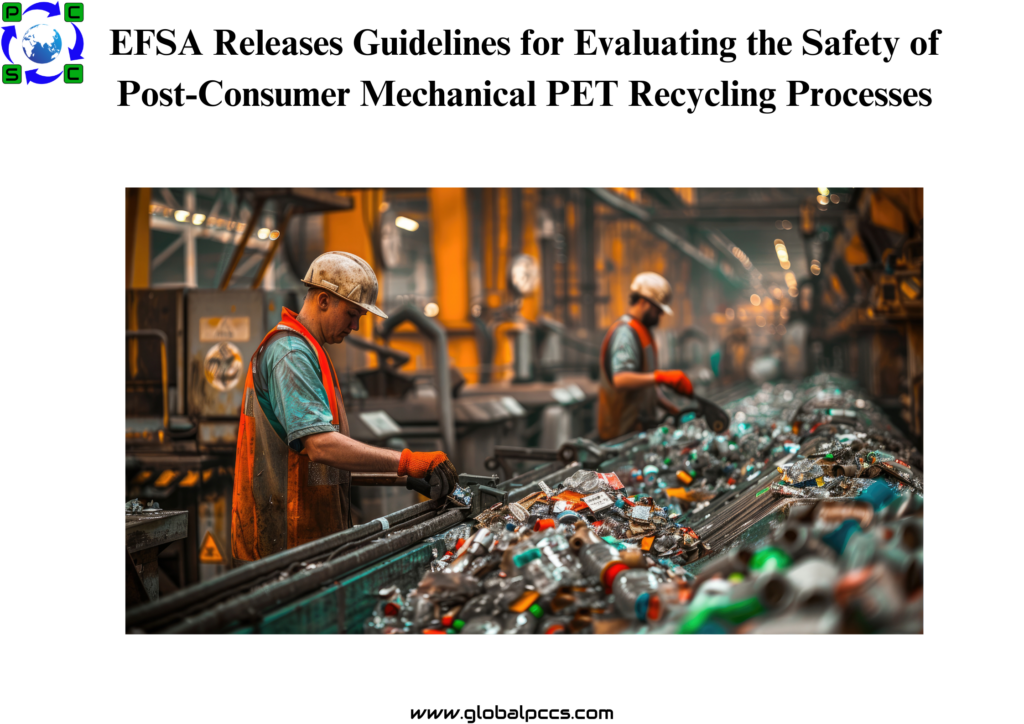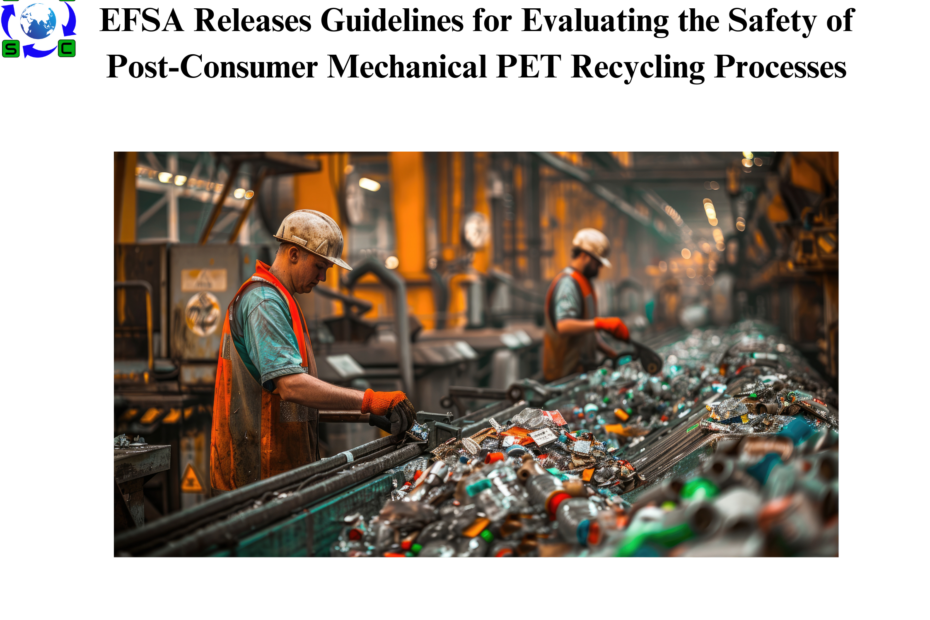 A new guidance titled “Scientific Guidance on the criteria for the evaluation and on the preparation of applications for the safety assessment of post-consumer mechanical PET recycling processes intended to be used for manufacture of materials and articles in contact with food” was released by the European Food Safety Authority (EFSA) on July 30, 2024.
A new guidance titled “Scientific Guidance on the criteria for the evaluation and on the preparation of applications for the safety assessment of post-consumer mechanical PET recycling processes intended to be used for manufacture of materials and articles in contact with food” was released by the European Food Safety Authority (EFSA) on July 30, 2024.
Commission Regulation (EU) 2022/1616, which was released on September 20, 2022, regarding recycled plastic food contact materials (FCMs), is being implemented with the help of this new guidance. Specifically, this guidance will help applicants prepare applications for new authorization of “post-consumer mechanical PET” recycling processes or for the adjustment of current authorizations. Stakeholders are required to create dossiers in accordance with this new advice as of the publication date.
The new assessment guideline contains more precise standards for the equipment and operation than the old guidance did.
For instance, the updated Guidance mandates that:
- Technical drawings and images should be used to assist the detailed description and assembly of the main and auxiliary equipment elements (such as reactors, stirring systems, vessels, extruders, crystallizers, preheaters, and pelletizers).
The following elements ought to be addressed in detail and backed up by information:
- Design and placement of the stirring tools; the stirring system’s configuration, including the quantity and kind of revolving tools, if any.
- Systems for heating and cooling, vacuum or flowing gas, placement and configuration of gas and vacuum ports, and cleaning of circulating gases.
- All equipment components that are part of the same process must have information on how they operate included in the technical dossier. The technical dossier should specifically cover and provide data on the following issues in particular:
- Volume, weight, and level of filling.
- Temperature gradient around the reactor’s axis.








 Authorised IMDS & CDX Training & Consulting partner for
Authorised IMDS & CDX Training & Consulting partner for






